Ten species avoiding extinction with the help of zoos
- Published
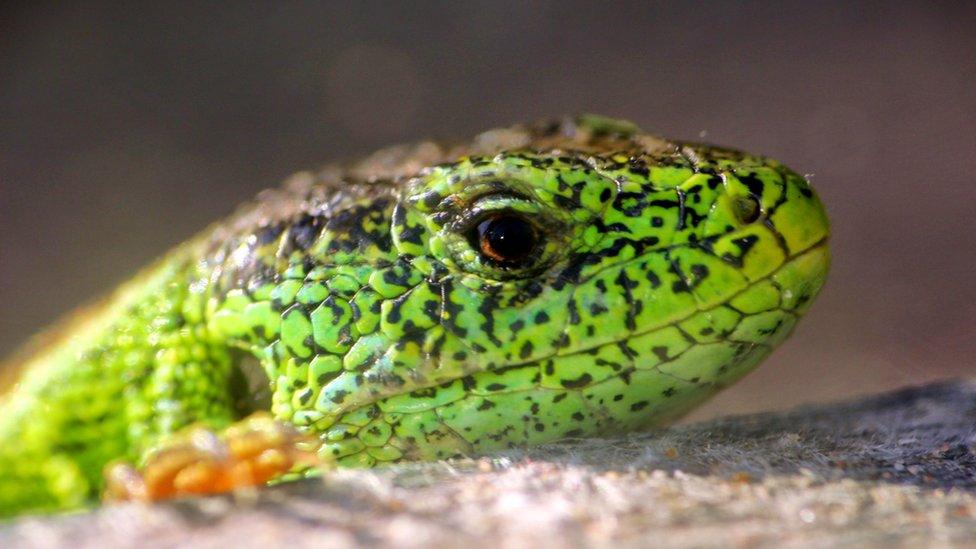
The UK reptile the Sand lizard is one of the 10 reptiles and amphibians listed by the British and Irish Association of Zoos and Aquariums as avoiding extinction with the help of zoos. The association has published the list to raise awareness of the endangered species.
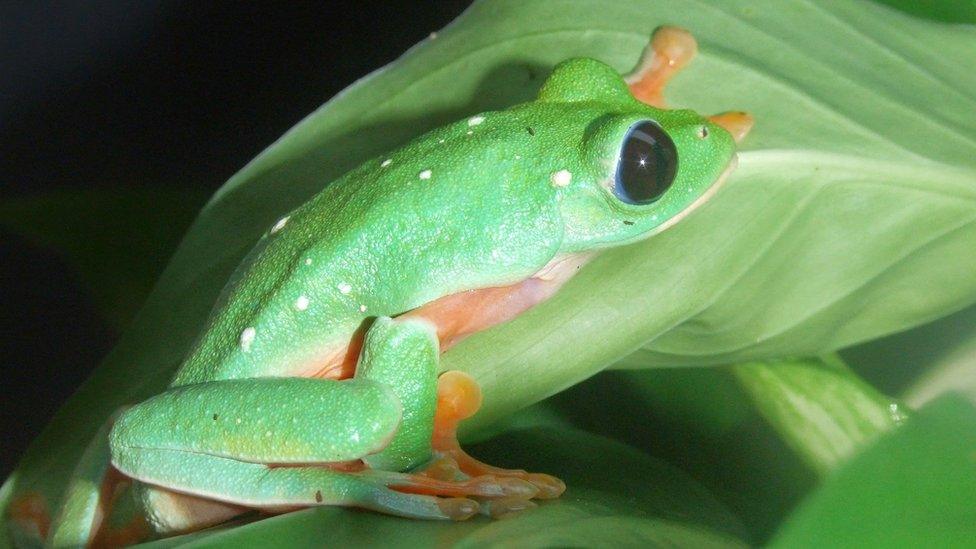
This little guy is a Morelet's leaf frog. It is a type of tree frog found in tropical forests. Numbers have dropped due to a reduction in their natural habitat.
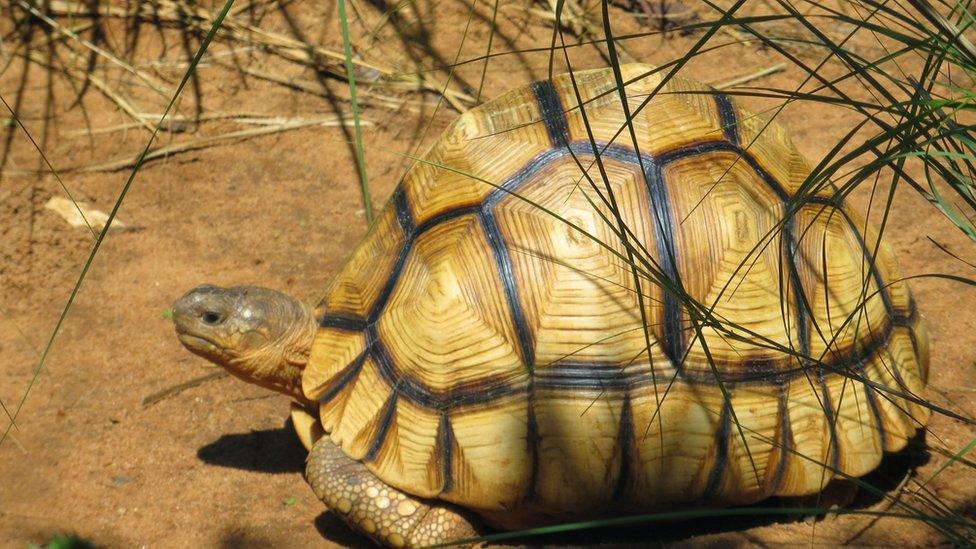
The Ploughshare tortoise is under threat because it is often illegally traded and sold as a pet.
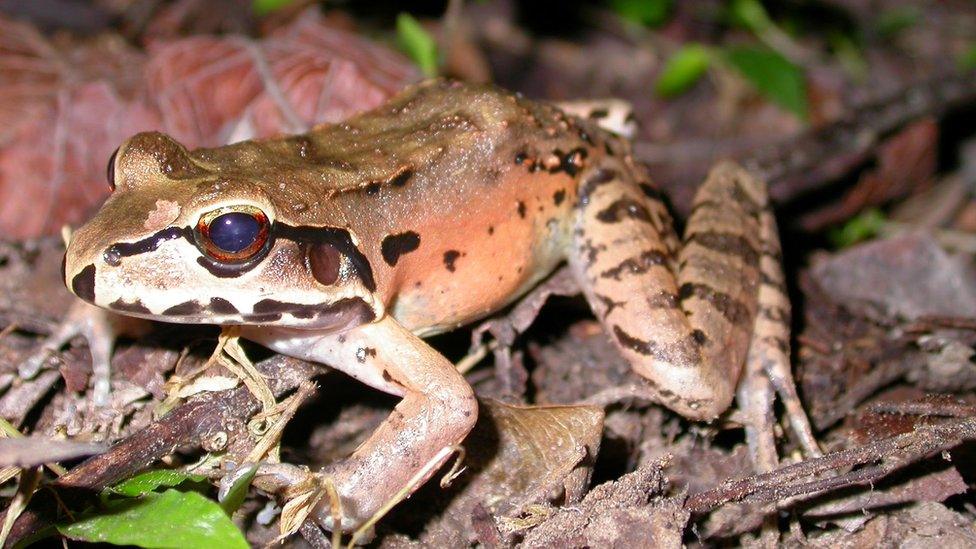
This is the world's biggest frog, is called the Mountain Chicken Frog. It got its name because it is often hunted for food.
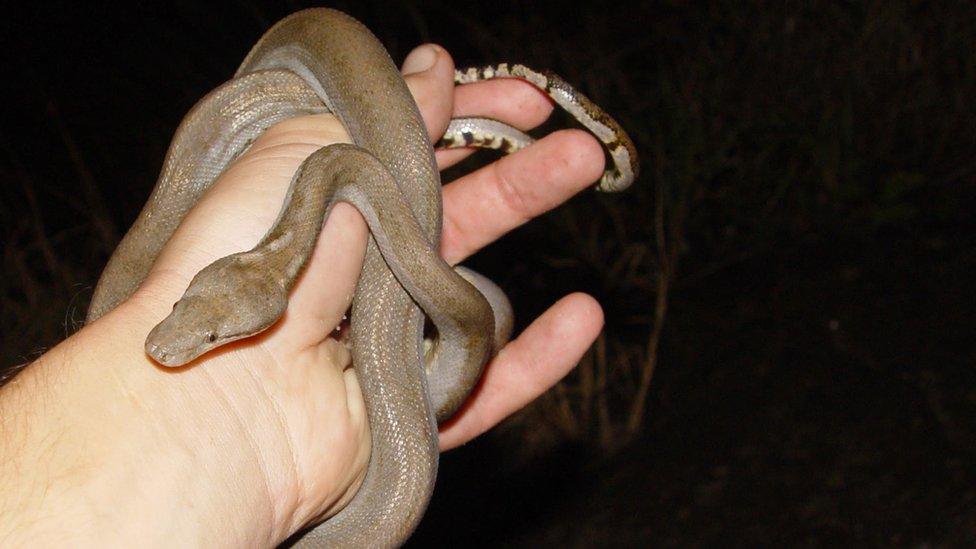
The Round Island Boa is from Mauritius and is under threat but conservation efforts are helping boost numbers. It is one of the few snakes that can change its colour.
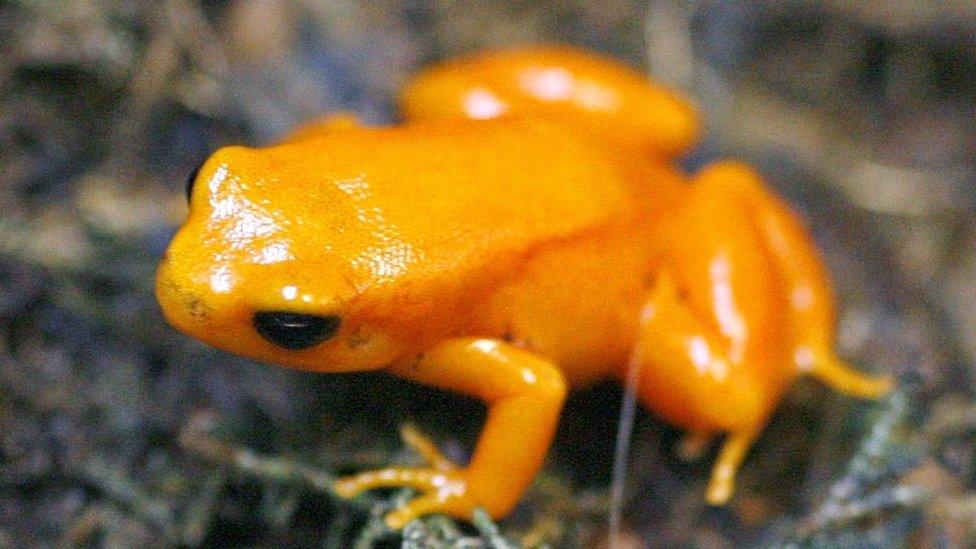
This rare, brightly coloured, frog, is a Golden Mantilla. It uses clicks instead of croaks to attract a mate.
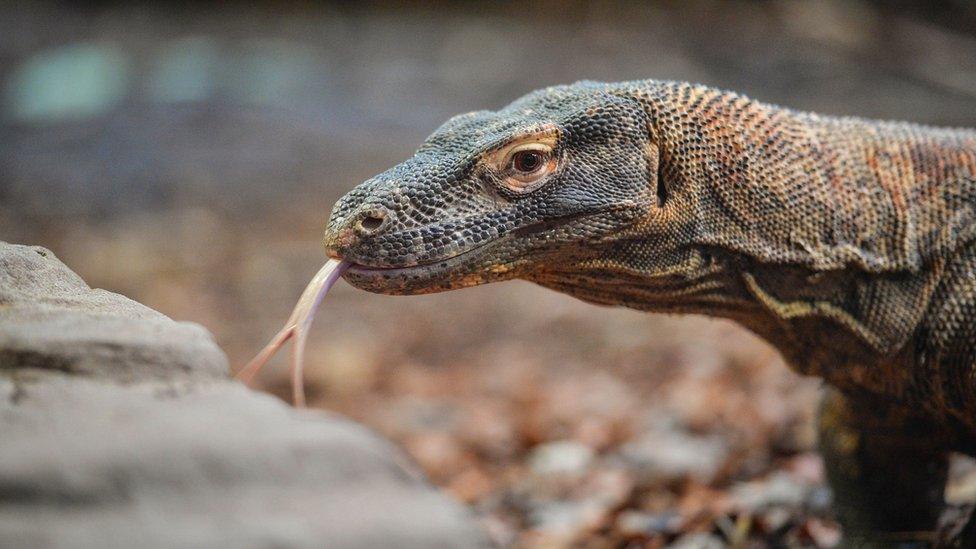
The Komodo Dragon is also on the list. There are fewer than 1,000 left in the wild.
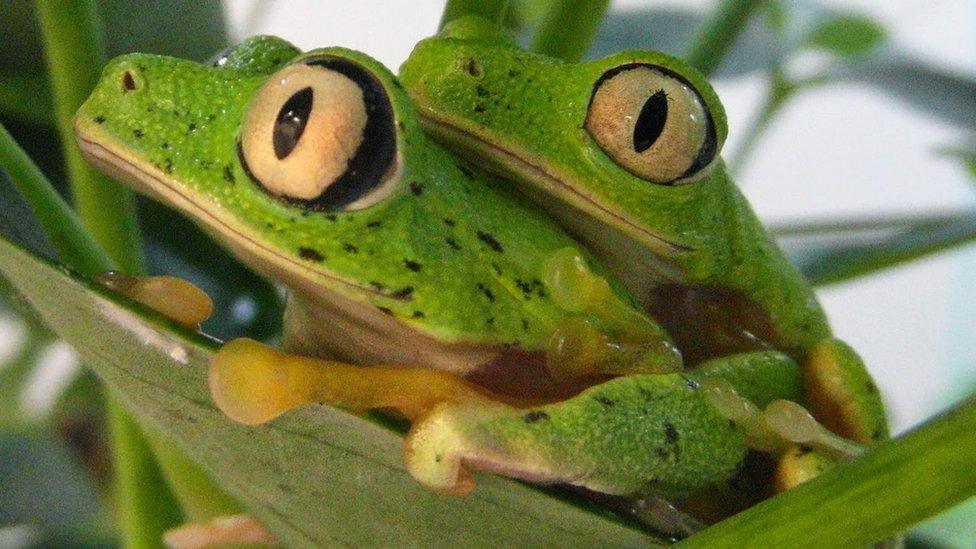
Lemur leaf frogs are from Central America. They are so tiny they could easily fit on your fingertip! The males are only 3cm long.
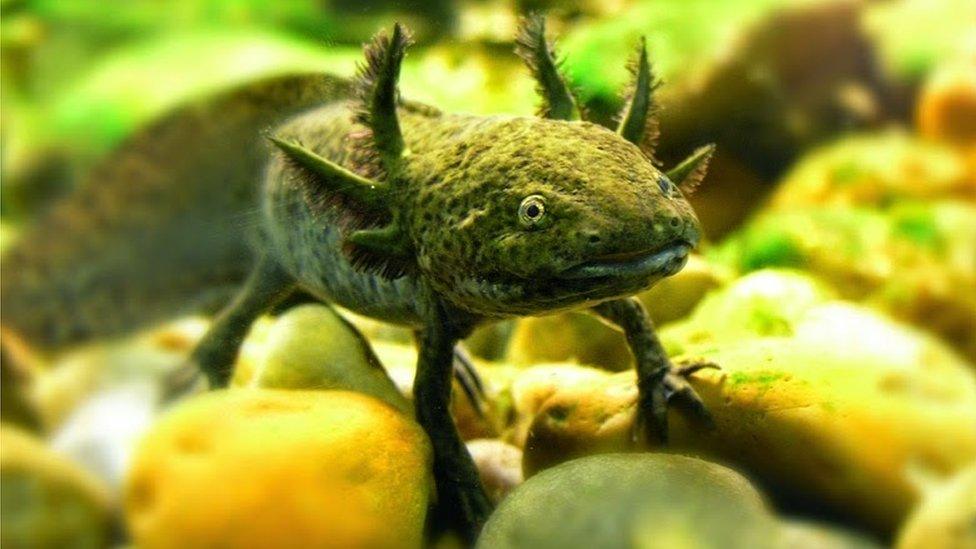
This funny looking thing is an Axolotl. It looks like a giant tadpole even when it is grown up and it has the amazing ability to grow limbs back if it needs to.
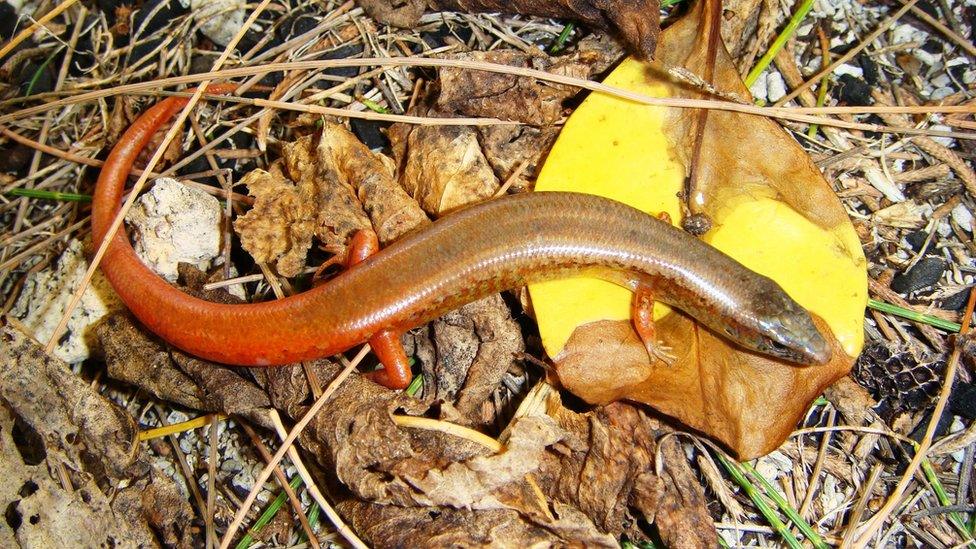
The Orange Tailed Skink was only discovered in 1995. They live on Flat Island in Mauritius, but invasive shrews that prey on them on the island have had a devastating affect on them.
